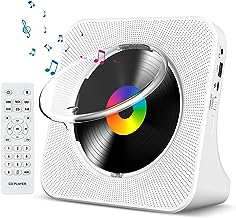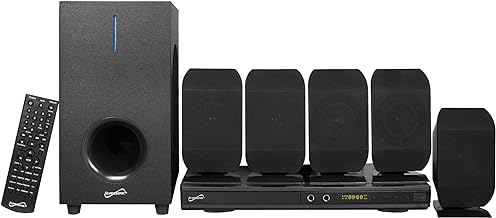5 important factors worth considering when looking for the best power amplifiers
When exploring power amplifiers, it is important to understand the key factors that can enhance your audio experience. Purchasing a power amplifier is more than just looking at wattage or brand name; it requires an understanding of technical specifications, sound quality, compatibility with your current setup, and overall performance. Finding the right power amplifier involves a mix of craftsmanship, engineering, and your personal music tastes to create a truly harmonious sound experience.
See our guide to the best power amplifiers.
Power output
When looking to buy power amplifiers, the amount of power they can put out is really important. It’s a key factor that affects how well your audio system works and the quality of the sound it produces. Some people might say that more power is always better, but what matters most is knowing what you need and like. Think about the size of the room where you’ll be listening, the kind of music you enjoy, and how loud you want it to be. Having too much power might not make the sound better if it’s more than you actually need. You need to find a good balance that fits with how you like to listen, so you get great sound without losing quality.
Also, just focusing on power output numbers might not give you the full picture. You should also think about how well the amplifier is made, how efficient it is, and if it works well with your speakers. Sometimes, a lower-powered amplifier that’s well-designed can work better than one with more power, because it has better parts and works more efficiently. Instead of only looking at power numbers, look at things like total harmonic distortion, signal-to-noise ratio, and frequency response. When you consider these things along with power output, you can make a smarter choice that makes your listening experience better and shows how well the amplifier and speakers work together. Remember, it’s not just about the numbers, but how power and precision work together to make great sound.
Impedance matching
When shopping for power amplifiers, it’s important to consider impedance matching. This is the key factor that can greatly affect how your audio system sounds and performs. Even though some people may think of impedance matching as just a technical detail, it actually plays a crucial role in making sure the signal is transferred correctly. If you don’t match the impedance properly, you can end up with distorted audio, reduced power, and even damage to your equipment, which can all affect your listening experience. That’s why it’s essential for buyers to understand the impedance requirements of their speakers and amplifiers to ensure they work well together and get the best sound quality possible.
By paying attention to impedance matching when choosing from the variety of power amplifiers available, music enthusiasts can experience superior sound quality that goes beyond the ordinary. Taking the time to evaluate and choose amplifiers that match the impedance needs of speakers can enhance the listening experience to a whole new level of excellence. Essentially, impedance matching is like the foundation of a symphony, shaping how music is conveyed and felt. Therefore, those who are passionate about achieving exceptional sound quality should recognize the significant impact that careful impedance matching can have on their audio setup.
Signal-to-noise ratio
When it comes to audio equipment, the signal-to-noise ratio is really important when you’re looking to buy a power amplifier. It measures how good the sound is compared to any background noise, which shows how well the amplifier can give you clear, sharp audio. Having a high signal-to-noise ratio means the amplifier is top-notch, letting you hear all the little details in your music without any unwanted distractions. If you’re picky about your sound quality, getting an amplifier with a great signal-to-noise ratio is like discovering new layers in your favorite songs and getting lost in pure, amazing sound.
In the world of power amplifiers, the signal-to-noise ratio is a key factor that separates average from outstanding. Choosing an amplifier with a strong signal-to-noise ratio ensures that your audio experience goes beyond just listening—it becomes a beautiful, high-quality symphony. With so many options out there, understanding the importance of signal-to-noise ratio helps you create a listening space that’s precise and authentic. Basically, the signal-to-noise ratio isn’t just a technical detail—it’s a door to a place where every sound you hear is crystal clear and full of life.
Number of channels
When buying power amplifiers, the number of channels is important to think about. This affects how you hear sound in different places. Choosing a one-channel amplifier is good for keeping things simple and focusing on one source. It gives direct and clear sound. On the other hand, picking a multi-channel amplifier lets you do more. You can make more layered sound and connect many devices for different setups. Having multiple channels lets you customize sound for different times and preferences.
Some may say that more channels mean things are harder to set up. But having more options and control is worth it. Multi-channel amplifiers let you make complex sound systems, whether it’s for a home theater or a studio. Using multiple channels lets you try new sounds and make the most of your equipment. Overall, the number of channels in a power amplifier should match your needs and goals. Finding a balance between simple and complex setups will give you sound that matches your style.
Size and portability
When choosing a power amplifier, people often forget about size and weight, which can really make a difference. While power and performance are important, a small and light amp can have many benefits, especially for musicians who are often on the move or have limited space. It’s really handy to be able to easily carry your amp to different gigs or move it around your home studio. Plus, a smaller amp can fit in well with different setups without taking up too much space or standing out too much.
Some may think it’s better to choose a powerful amp even if it’s larger, but technology has come a long way. Nowadays, you can get a small amp that still has good power. This balance between being portable and having good performance means you can have the best of both worlds without having to compromise. In a world where being versatile and flexible is important, going for a smaller amp can not only make your life easier but also open up more possibilities for where and how you use your equipment. In the end, the size and portability of a power amp are really important and can greatly improve your playing experience while giving you the freedom to amplify your sound wherever your musical journey leads you.
Conclusion
Power amplifiers are essential for improving the sound quality for music lovers, professionals, and everyday listeners. As we learn more about these amplifiers, we see they are incredibly versatile and powerful. They can enhance sound with accuracy and clarity, opening up a world of possibilities for creating captivating sound environments. Whether you’re in a recording studio, at a live concert, or relaxing at home listening to your favorite songs, power amplifiers are vital for delivering impactful audio experiences. With advancements in technology and design, the future of power amplifiers looks promising, with even better performance and efficiency. Overall, power amplifiers are crucial tools for shaping how we hear and enjoy music. Want more info on seat massager for driving, check the best seat massager for driving.

